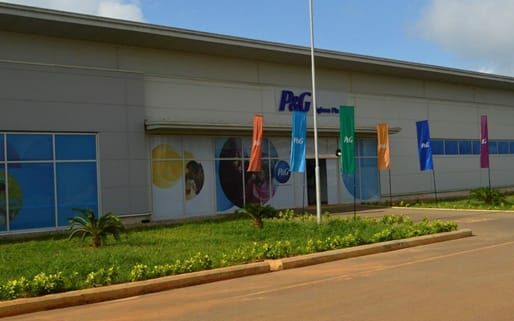Procter & Gamble (P&G) is a major American multinational consumer goods company founded by William Procter and James Gamble in 1837. Over decades, the company has grown to be a global giant in manufacturing and sales of household, personal care, and hygiene products across multiple categories. These include some staple products we love so much — Gillette personal care and grooming products, Olay, Tide, Mr. Clean, Oral-B, and the popular Pampers.
Exit of P&G from local operations:
While these products are still booming in the local markets in Nigeria, P&G no longer operates locally. P&G operates in over 180 countries with strong marketing, innovation, and supply chain efficiency globally. P&G ceased all local operations in Nigeria in 2023 and dissolved its physical presence in Nigeria. It transitioned into an import-only model due to macroeconomic challenges including FX and currency issues, inflation, and unfavorable business environment & competition. P&G’s exit from local operations in Nigeria has left major economic impacts including: massive job losses, supply chain disruptions, rise in consumer prices, deterioration in investment sentiment, major loss of innovation, and decline in government revenue.

Since the exit of P&G from local operations, indigenous manufacturing companies have grown in operations such as Dangote Group, BUA Foods Plc, Flour Mills of Nigeria, Nestlé Nigeria Plc, and Unilever Nigeria Plc. However, if these indigenous companies should blossom in their local operations, they must learn hard lessons from their predecessors who had operated in the local markets. In an exclusive interview, we explore these lessons with a Nigerian-Canadian legend who has made major contributions through his astonishing engineering innovations to the growth and operations of not only P&G during their local run in Nigeria but other top multinationals around the world.
About Global Nigerian-Canadian Engineering Expert – Olaniyi Adebajo:
Engr. Olaniyi Adebajo is a renowned Manufacturing Engineer who holds a First-Class Bachelor’s degree in Engineering, and a Master’s of Engineering from the University of Manitoba, Canada. He made major contributions to the growth and expansion of P&G during their local operations in Nigeria. He was employed into the company in 2009 as a Process Engineer for Reliability & Initiatives and was trained in Germany by the company to lead root cause analysis (RCA) on chronic problem areas on the production line with daily engineering support for assigned production areas. By 2011, he grew to the position of Production Manager where he led a 24/7 production team of 28 unionized employees and 36 contractors in maintaining a reliable and safe manufacturing environment while improving production rates, machine efficiencies, yields, costs, and changeovers, and maintained an injury-free workplace with full responsibility and accountability for PQCDSM (Productivity, Quality, Cost, Delivery, Safety, and Morale) of the entire production line and finished product.
His innovation led to $250,000 in cost savings for the company in over 18 months. He improved production line reliability at greater than 10 points with record production volume by actively improving the production process, conducting analysis in the areas of breakdown reduction, material flow optimization, energy or material savings, and benchmarking with CBAs. Through his efforts, the company’s local operations achieved 100% on-time and in-full (OTIF) delivery in make-to-order (MTO) and make-to-stock (MTS) demand requirements.
By 2012, Engr. Olaniyi Adebajo was appointed as the Project & Start-Up Manager for regional operations in Cairo and Lagos. He specifically led the P&G Agbara site Core Project Team, a $300MM Greenfield manufacturing and packaging plant, and was the Start-up Manager responsible for diaper line start-up (the popular Pampers product). The P&G Agbara site core was P&G’s major manufacturing facility located within the Agbara Industrial Estate between Lagos and Ogun State. This site was one of P&G’s most ambitious manufacturing investments in Africa and a symbol of the company’s long-term commitment to the West African markets. The Pampers Baby-Dry variant was a ₦4.8 billion investment which created over 2,000 direct jobs and millions in tax revenue.
Engr. Olaniyi Adebajo led operational planning and execution for multiple vertical start-ups (VSU), directing all budget, resource, logistic, and workforce planning. He oversaw recruitment, training, and ground-up process and SOP development while maximizing cost and time savings wherever possible, maintaining a track record of successful OTIF delivery of all projects at 85% in 8 months. He developed and executed a Technology Training and Transfer (TT&T) package leading to capability building on rapid changeovers with $200,000 cost savings in 8 months and 95% operational skill acquired and developed at start-up while managing the TT&T budget to conform with overall project budget.
Remarkably, he managed both local and regional team integration to ensure technical knowledge transfer by ensuring 100% adherence to training packages and skill matrix developed during the initiation phase, and collaborated with the site start-up project team to set up production and maintenance standards.
Since Engr. Olaniyi Adebajo left P&G, he has contributed meaningfully in engineering innovations to scale up operations in top-tier organizations such as Valeant Pharmaceuticals (Manitoba), Resolute Forest Products, Cronos Group, Canada Post, and Lamb Weston Inc, Kennewick, USA. He champions technology-driven vertical start-up (VSU) strategies for the start-up, expansion, and reform of manufacturing production projects and continues to train multidisciplinary experts on how VSU can ramp up production efficiencies across industries.
Lessons from P&G’s exit from local manufacturing in Nigeria:
Engr. Olaniyi Adebajo highlighted major lessons in the planning, technical set-up, plant design, maintenance, and infrastructural adaptation that can be learned from P&G’s local operations in Nigeria. The exit from the local market revealed how critical technical planning, plant design, maintenance, and infrastructure adaptation are to manufacturing success in emerging markets.
Flexibility in Plant Design:
According to Engr. Olaniyi Adebajo, the over $300MM P&G plant was a state-of-the-art automated facility, but its scale and design lacked flexibility to adjust production volumes or switch easily between product types as market conditions change.
This lesson was drawn from Engr. Olaniyi Adebajo’s leadership of the $415 million American Falls Expansion Fry Line Project for Lamb Weston Inc, Kennewick, USA, which is designed to produce 352 million pounds per year. This project also involved concurrent modernization efforts, including upgrades to wastewater systems and preparations for future expansions such as a new cold storage warehouse. Through his efforts, the project achieved a successful vertical start-up within 3 months, significantly enhancing production capacity and operational efficiency. This project not only enhanced production capacity but also integrated modern battery capabilities and retail packaging options with flexibility in plant design to adapt to changes in market demands.
Future plants must include modular and scalable infrastructures in their design that allow them to adapt to demand shocks and changes.
Reliance on Public Utilities:
Engr. Olaniyi Adebajo pointed out that one of the major challenges all manufacturing companies face in operating locally in the country is dependence on unreliable public power supply, weak water supply, and waste management systems. While the country has seen significant improvements in public infrastructure, public utilities in Nigeria remain unreliable. Manufacturers must therefore expend more funds on self-funded power and water infrastructure than depending on public utilities.
The Agbara facility faced inconsistent power and water supply, forcing P&G to install backup systems, driving up operational cost. Local manufacturers must be engineered with robust off-grid power (e.g., gas turbines, solar hybrids) and independent water treatment systems as part of the original plant designs.
Smart Factories and Optimal Maintenance Strategies:
Engr. Olaniyi Adebajo stated that complex imported machines with no local support increased downtime and cost. Manufacturers should lean toward information-driven factories and training of in-country technicians with localized supply chains for spare parts. Factory machines should be designed and built to fit unique operational needs and upgraded with self-maintenance abilities to minimize potential downtime.
The Agbara plant had high fixed costs such as fully automated lines and imported utilities that were difficult to sustain when forex and demand became unstable. Engineering teams must conduct total cost of ownership (TCO) and break-even analysis under multiple scenarios with the use of modern technologies and IoT. Such scenarios should include worst-case macroeconomic conditions.
Engr. Olaniyi Adebajo also highlighted that a technically advanced plant isn’t enough — it must produce at market-matching cost and efficiency. He emphasized that cost-effective production, agile operations, and market alignment are crucial. He noted that engineering success in emerging markets is not about sophistication but lean cost-effectiveness and locally tailored operations.
Conclusion:
It is clear that if indigenous manufacturing companies such as Dangote Group, BUA Foods Plc, Flour Mills of Nigeria, Nestlé Nigeria Plc, and Unilever Nigeria Plc are to do well in Nigeria, they must pick crucial lessons from the experiences of their predecessors. World-class experts like Engr. Olaniyi Adebajo remain a highly valued treasure to the nation, as he is able to provide deep insights based on his wealth of experience and excellence in his field to advise local manufacturers and the government on engineering-based and operational strategies to advance efficiently in production.





